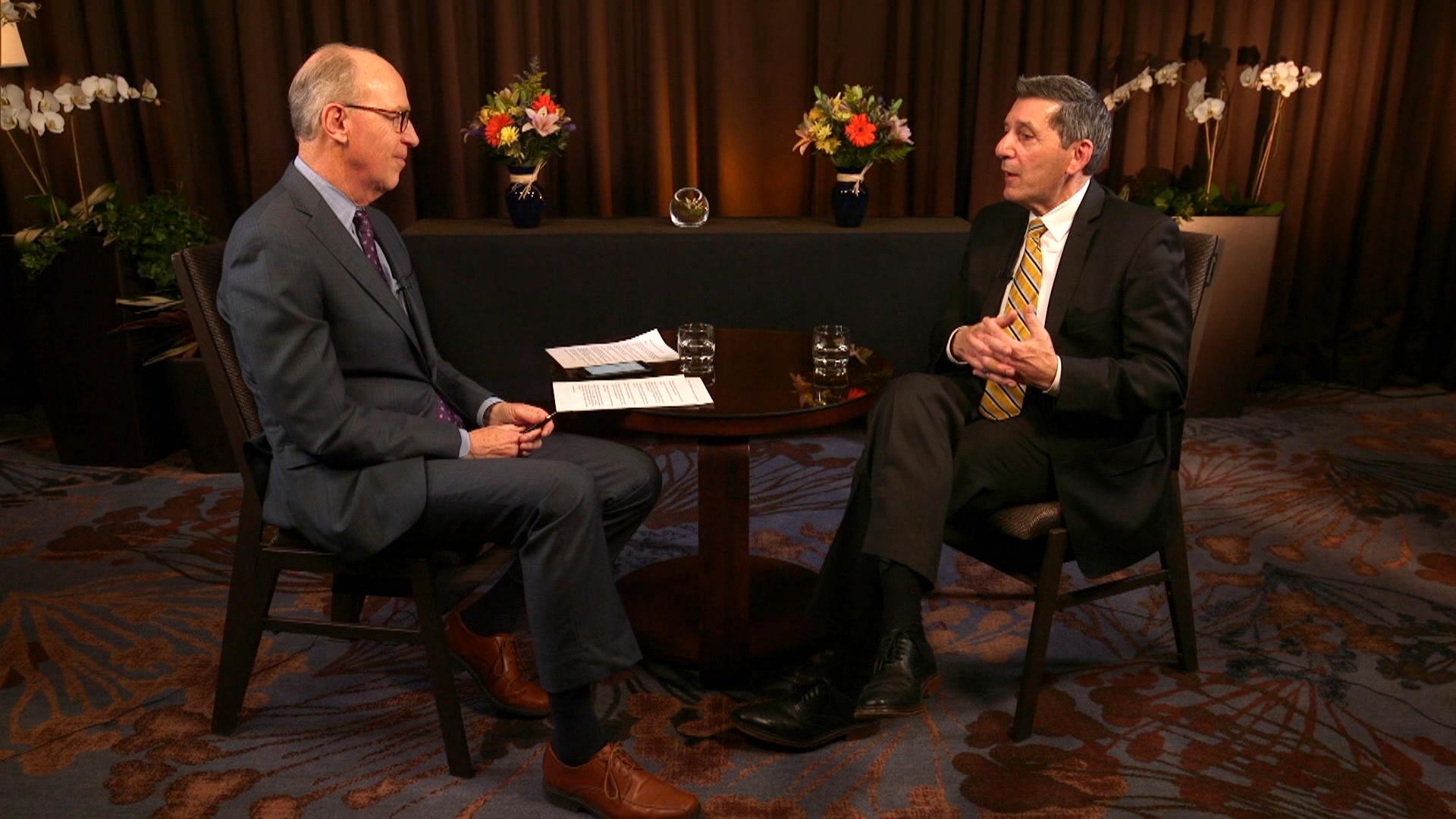Michael Botticelli likes to say the response to the epidemic of opioid addiction in America requires an “all hands on deck” approach, one that includes policy changes, increased funding for treatment, criminal justice reforms, and even a change to our language. The director of the White House Office of National Drug Control Policy says words like “addict” and “junkie” only serve to reinforce the shame that surrounds those with addictive disorders and can prevent them from getting the help they need.
“It really perpetuates a stigma, and we know that stigma really creates a barrier for people,” says Botticelli, who is himself a recovering alcoholic. “It delays people seeking care and creates opportunities for people to avoid care.”
As part of KET’s Inside Opioid Addiction initiative, Bill Goodman spoke with Botticelli about addiction prevention and treatment at the recent National Rx Drug Abuse and Heroin Summit in Atlanta.
Botticelli says the roots of the opioid epidemic go back to well-intentioned efforts by the medical community to help the millions of Americans who suffer from chronic pain. But, he says, issues with opioid abuse began to arise when pharmaceutical companies downplayed the addictive properties of painkillers like Vicodin, OxyContin, and Percocet to doctors who had relatively little training in how to safely prescribe the medications.
Now, Botticelli says there are enough legal prescriptions for opioids that every American could have their own bottle of pain pills. He says that increase in prescriptions directly correlates to an escalation in opioid-related overdose deaths during the past 15 years.
To address the over-prescribing of painkillers, the Centers for Disease Control and Prevention (CDC) recently released new guidelines for prescribing opioids to treat chronic pain. Botticelli says the CDC recommends limiting the number of people who receive opioid medicines and reducing the number of pills available in their prescriptions, as well as promoting alternative therapies to treat pain in certain patients. He says the guidelines are for current health care providers, and will become prerequisites for graduation from 60 American medical schools.
Shifting from Incarceration to Treatment
The path from addiction to recovery still remains fraught with many challenges. Botticelli says that law enforcement officials have tended to view those with a substance addiction as bad people who do bad things, which has led to punitive responses like incarceration.
“Our jails and prisons are full of people who are there largely because of their addiction,” Botticelli says. “We can do a better job both protecting public safety and reducing the magnitude of addiction if we give people good, community-based treatment.”
In addition to so-called drug courts that seek to move addicts from the criminal justice system into treatment, Botticelli says several local police departments around the country are also experimenting with ways to help those with a substance abuse problem. He points to the Law Enforcement Assisted Diversion (LEAD) initiative in Seattle that diverts low-level drug offenders to community-based treatment programs. Botticelli notes similar efforts by police departments in Dayton, Ohio, and Gloucester, Mass.
“I think we’re seeing this groundswell and movement about how do we create these kinds of diversion opportunities at the point of contact for people on the street to make sure that we are not over-criminalizing people with addictive disorders,” Botticelli says. “We need to reserve our law enforcement response [for] people who are preying on our communities, not the people with addiction who need treatment.”
Improving Access to Treatment
Treatment options are still limited in many areas of the United States, particularly in rural communities. Botticelli says President Barack Obama has proposed a $1 billion appropriation in fiscal year 2017 to fund state-based treatment efforts around the country, and he says the U.S. Department of Health and Human Services recently announced an allocation of almost $100 million to support expansion of treatment opportunities in community health centers. Botticelli says those moneys will help give addicts greater access to treatment programs and facilities, and provide better training to health care providers on preventing, detecting, and treating addiction.
“We have three great FDA-approved medications for the treatment of opioid use disorders, yet we have too few doctors who are trained in these medications, and they’re often not located in rural parts of the country,” Botticelli says.
Those drugs – Methadone, Suboxone, and Vivitrol – are surrounded by their own misconceptions, according to Botticelli. Some critics contend that patients can become addicted to those medications during the course of their treatment and simply exchange one drug habit for another.
Botticelli says programs that couple one of those medicines with counseling are far more effective than treatments that don’t use them. He says no one would deny a diabetic the insulin they need just because that person could regulate their blood sugar through diet and exercise. So why, he asks, should addicts be denied a medication that is known to help break drug dependency?
“We need to change the perception that somehow people on these medications are not deeply ingrained in their recovery,” says Botticelli. “Medication-assisted treatment really should be the standard of care for people with opioid use disorders.”
 This KET production is part of the Inside Opioid Addiction initiative, funded in part by the Foundation for a Healthy Kentucky.
This KET production is part of the Inside Opioid Addiction initiative, funded in part by the Foundation for a Healthy Kentucky.



